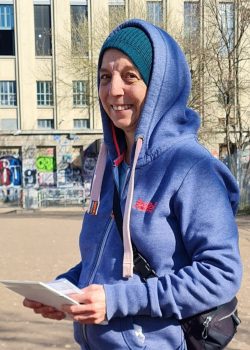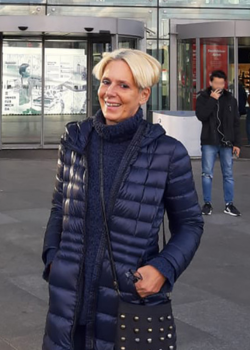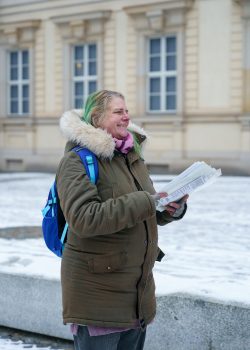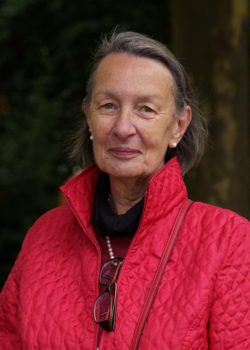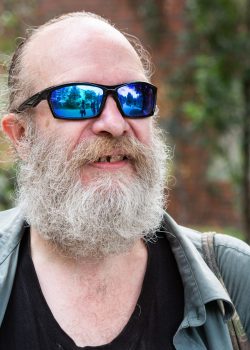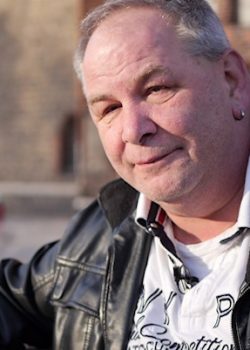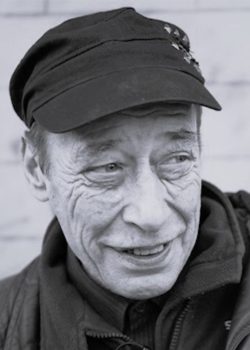Our city tours are about individual perspectives. People who are frequently and happily talked about, get the chance to have their voices heard. They invite you to enter into a dialogue and see a different view of the city.
Life on the streets follows its own rules: There is no privacy – everything is public. Inevitably, one’s perspective of the city changes when one becomes homeless and life suddenly centres around streets, parks and train stations.
With our city tours, we wish to create awareness for this different perception of Berlin, to inform about homelessness and to let persons have their say who have experienced such a situation themselves.
Please note that for an English speaking group you will need a translator.
Miriam’s city tour is an impressive journey through Berlin’s nocturnal world and the reality away from the glamor. Around Ostbahnhof station, in the middle of Berlin’s nightlife, she shows the places of life in the shadows of society. As a formerly homeless migrant, she shows her former sleeping places and talks about topics such as safety and social interaction on the streets. At legendary clubs and tourist hotspots, she talks about how she lived alongside parties and tourists — without ever being part of them herself.
Petra Elten è cresciuta in Italia: le strade di Roma hanno a lungo costituito il suo mondo. Nonostante una vita agiata, è arrivata presto in contatto con droghe pesanti. Nel 2003 ha iniziato una terapia di disintossicazione a Berlino. Non riuscendo a portarla a termine con continuità, si è ritrovata a vivere, tra una terapia e l’altra, nella condizione di persona senza dimora.Nel suo tour nei dintorni della stazione, Petra racconta come è riuscita, dopo 38 anni di dipendenza, a liberarsi dal problema dell’eroina.
As a long-term homeless individual, Janet Amon shares her experiences as a woman on the streets, emphasizing the challenges of violence and explaining why a shelter placement alone is not a sufficient solution.
Petra was addicted to heroin for 38 years. In 2003, she came from Italy to Berlin, where she tried multiple times to undergo withdrawal. The therapy discontinuations led to her having to sleep in emergency shelters at times. On her tour she shares what this meant for her and how she ultimately managed to overcome her withdrawal.
Susanne, born in (West) Berlin, shares in her tour about her childhood in Charlottenburg-Wilmersdorf, the contrasts between the glamorous life along Ku’Damm, and visible poverty. She opens up about her personal experience with homelessness and discusses topics such as housing rights, social housing construction, real estate speculation, cultural participation, and elderly poverty.
In 2012, Dieter came from Thuringia to Berlin without an apartment and a roof over his head. On his tour he talks about his daily expeditions with other homeless people along Kantstraße.
Uwe only intended on spending a few days on the streets following reunification. In the end, this turned out to be seven years. On his tour he reports about this time.
Klaus lived on the streets and lived from collecting bottles for nine years. On his tour, he explains where he slept and how he survived.
Klaus conducted his tour between 2015 and 2024 for numerous participants.

